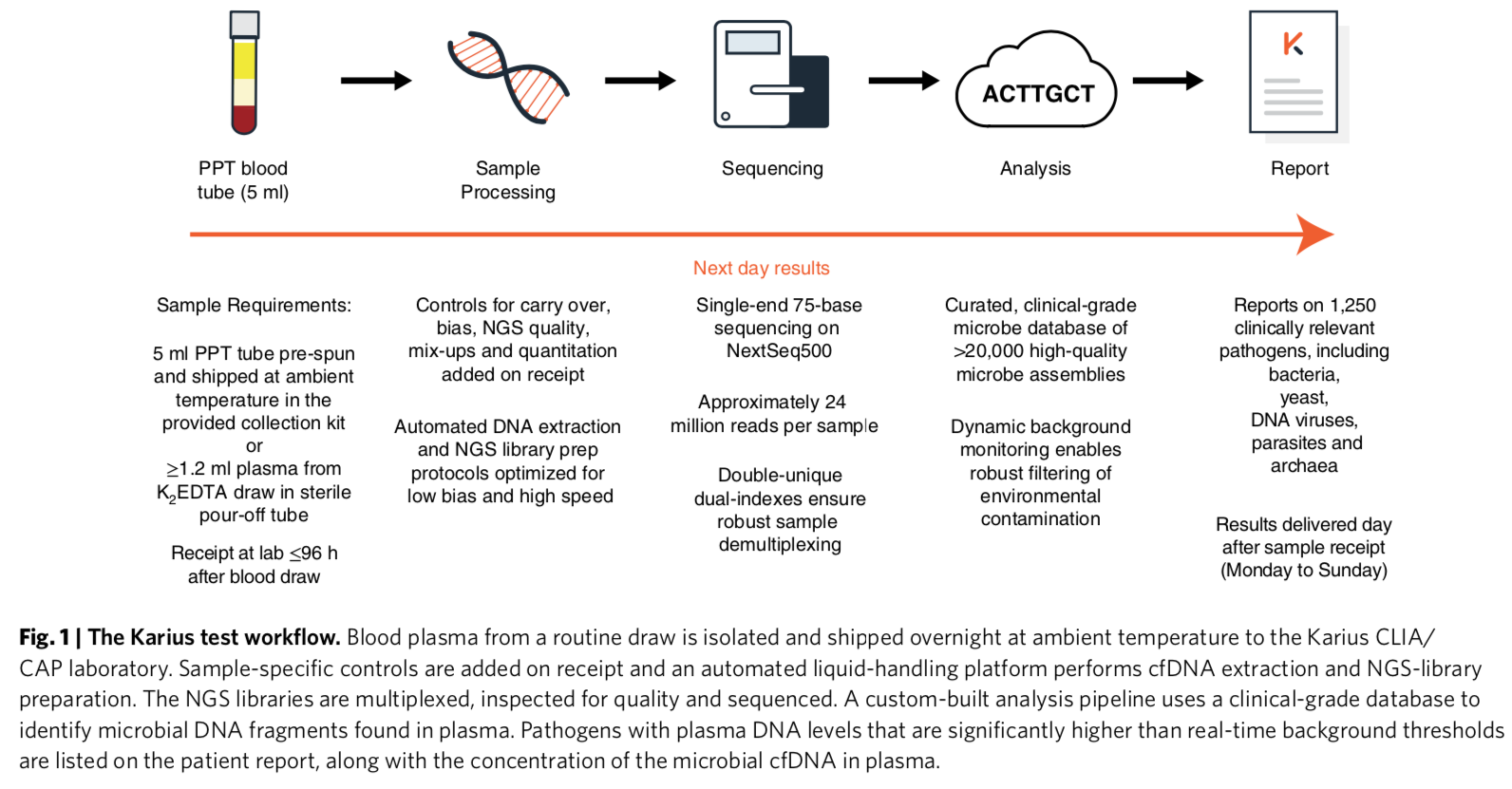Though the sciences of microbiology and public health have largely made infectious disease an afterthought for most people in the developed world, microbes have not gone away. Influenza, antibiotic-resistant bacteria, and several other nasty bugs will remain with us for years to come. Indeed, infections cause 5 million hospitalizations each year, often among the elderly or immunocompromised.
Identifying the cause of disease isn't always straightforward. Symptoms are often generic and rarely useful in diagnostics. (For example, the flu and a bad cold both feel the same.) A patient with a deep tissue infection may require a biopsy. Other microbes can't even be cultured in the laboratory at all. These long-standing difficulties may be solved, however, with a new blood test.
Developed by a company called Karius (which had a presence at the Biotechnology Innovation Organization's BIO 2019 international convention that I attended last month in Philadelphia), the test uses next-generation sequencing technology to analyze microbial DNA detected in plasma, the liquid part of blood. (Blood should be sterile, so the detection of microbial DNA in plasma indicates infection.) In partnership with researchers at Stanford, the company claims in a paper published in the prestigious journal Nature Microbiology that it can identify some 1,250 different human pathogens within 24 hours of receiving the sample.

For this paper, the authors subjected their technology to a battery of experiments meant to demonstrate the sensitivity of their diagnostic test. The most informative involved the analysis of 348 patients who were admitted to the emergency room due to signs of sepsis (a blood infection) and were examined with both traditional microbiological methods and the Karius test.
Of these patients, 182 were identified to have some sort of blood infection. The Karius test performed the best, reaching a diagnosis in 169 cases, while the traditional microbiological methods only diagnosed 132. Even better, while the traditional methods took about 92 hours (just shy of 4 days) to return a result, the Karius test returned a result in 53 hours (just over 2 days), a number which includes sample shipment to the Karius laboratory.
A Verdict on the Karius Test
If Karius's technology is as good as this paper suggests, it could represent a gigantic leap forward in infectious disease diagnostics. But, of course, the Karius test isn't perfect because no diagnostic test is perfect1.
For instance, the Karius test identified the presence of microorganisms in people who were asymptomatic. In other words, it generated false positives. It also missed microbes in patients who actually were sick, which are false negative results. All diagnostic tests suffer from these shortcomings, so the only takeaway is that the researchers should continue working to improve these metrics.
Also, one of the key problems faced by hospitals or, say, doctors in the field in remote areas (e.g., Africa) is an inability to diagnose patients on the spot, what is termed "point-of-care" diagnostics. (A lack of point-of-care diagnostics is one of the things that worries national health security experts.) While Karius can help speed the process of sample identification, it cannot solve the point-of-care diagnostics issue2.
Overall, the Karius test appears set to greatly improve healthcare by cutting the time required to arrive at an infectious disease diagnosis in half. It will be interesting to see if their services become widely adopted.
Notes
(1) An excellent accompanying commentary discusses more pros and cons of the Karius test.
(2) That could be partially overcome, though, if the company decides to make its curated database of reference DNA sequences available online (via a subscription service, perhaps). Then, medical professionals in the field could sequence DNA and submit data online for processing. Of course, this would require doctors all over the world to have access to next-generation DNA sequencing machines.
Source: Timothy A. Blauwkamp. "Analytical and clinical validation of a microbial cell-free DNA sequencing test for infectious disease." Nature Microbiology 4: 663-674. Published: 11-Feb-2019. DOI: 10.1038/s41564-018-0349-6




